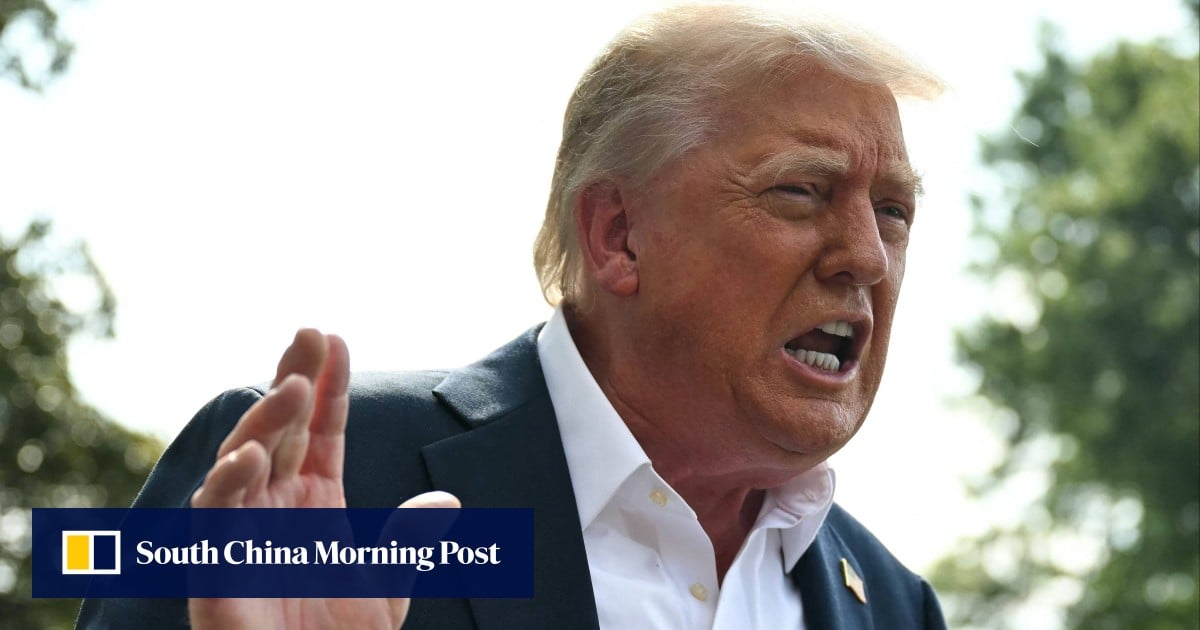In a dramatic shift in trade policy, President Donald Trump has announced a sweeping 30% tariff on goods imported from Mexico and the European Union, set to take effect on August 1. This decisive move
Did You Know
The shortest war lasted 38 minutes.
?
AD
comes after Trump spent recent days sending letters to world leaders about new tariffs the United States would be imposing. Such an aggressive strategy signifies a deepening of the trade war, creating ripples that could impact not only American consumers but also international economic relations.
The ramifications of Trump’s tariff announcement are significant, particularly for the European Union, one of the United States' largest trading partners. Experts warn that the tariffs could drive up costs for businesses and consumers on both sides of the Atlantic, as companies grapple with potential price hikes and supply chain disruptions. Financial markets responded with notable volatility, with the euro dipping to a three-week low after the announcement, reflecting investor concerns over the impact of the tariff threat on global economic stability.
As the European Union prepares to engage in negotiations to mitigate the impact of these looming tariffs, the stakes have never been higher. The prospect of escalating trade conflict raises concerns about a future of uncertainty in global markets, forcing stakeholders to brace for potential fallout. Will Trump’s aggressive approach lead to meaningful concessions from trading partners, or will it entrench divisions and lead to retaliatory measures? The coming weeks will undoubtedly reveal whether this bold move is a calculated strategy or a reckless gamble in the high-stakes arena of international trade.
Q&A (Auto-generated by AI)
What are the implications of Trump's tariffs?
Trump's tariffs, particularly the 30% on imports from the EU and Mexico, could lead to increased costs for consumers and businesses relying on imported goods. This might provoke retaliatory tariffs from affected countries, escalating trade tensions and potentially harming economic growth. Industries such as automotive and agriculture, heavily reliant on exports, could be adversely affected. The tariffs could also strain diplomatic relations, complicating negotiations on trade agreements.
How do tariffs affect global trade dynamics?
Tariffs disrupt the balance of international trade by increasing the cost of imported goods, making them less competitive compared to domestic products. This can lead to a decrease in trade volumes and create friction between trading partners. Countries may retaliate with their own tariffs, leading to a trade war, which can destabilize markets and impact global supply chains. Ultimately, tariffs can alter trade patterns, pushing countries to seek alternative markets.
What historical precedents exist for trade wars?
Historically, trade wars have often stemmed from protectionist policies, with notable examples including the Smoot-Hawley Tariff Act of 1930, which raised tariffs on imports and contributed to the Great Depression. More recently, the U.S.-China trade war initiated in 2018 saw both countries impose tariffs on billions of dollars' worth of goods, affecting global markets and prompting discussions on trade policy reform. These precedents highlight the potential for tariffs to escalate into broader economic conflicts.
How might EU countries respond to these tariffs?
EU countries are likely to respond to Trump's tariffs with retaliatory measures, potentially imposing their own tariffs on U.S. goods. This could include targeting key American exports such as agricultural products and automobiles. The EU may also seek to negotiate trade agreements with other countries to mitigate the impact of U.S. tariffs. Diplomatic efforts might be intensified to reach a compromise and avoid further escalation of trade tensions.
What are the potential economic impacts on consumers?
The imposition of tariffs typically leads to higher prices for imported goods, which can result in increased costs for consumers. For example, products from the EU and Mexico may become more expensive due to the additional tariffs, impacting everyday items. This could reduce consumer spending power and lead to inflationary pressures in the economy. Moreover, industries reliant on imports might pass on costs to consumers, further exacerbating the financial burden.

















